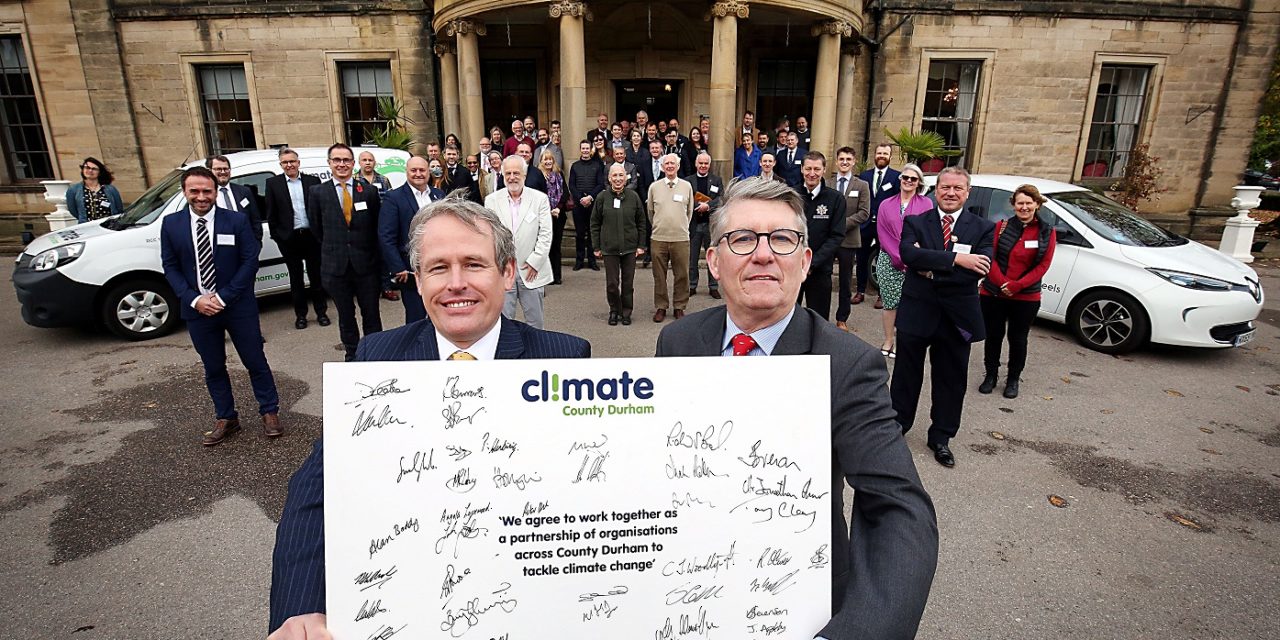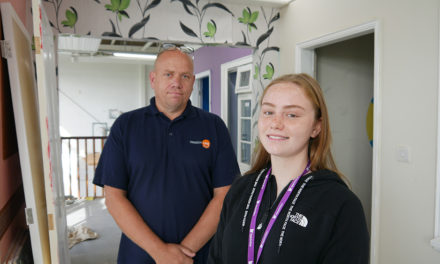Councillors will hear about considerable progress being made towards a more sustainable future, as carbon emission reduction efforts in County Durham reach new heights.
Durham County Council’s Cabinet will be presented with an update on the authority’s Climate Emergency Response Plan, which highlights the continued fall in council carbon emissions from its own buildings and activities, alongside the considerable work done to support residents, businesses and community organisations in the transition to a low carbon future.
Cllr Mark Wilkes, Durham County Council’s Cabinet member for neighbourhoods and climate change, said: “Since the implementation of our latest Climate Emergency Response Plan, we have made considerable progress towards achieving our goal of being a net zero council by 2030, which is testament to the hard work and ingenuity of the council and its partners.
“Climate change has the potential to cause catastrophic problems for generations to come. It is important that we look at and address the issues in our area, to reduce our contribution to this international crisis.
“As well as reducing our carbon emissions, the work carried out will cut costs for the council.
“While we have plenty to build on here, we recognise that there is much more to be done so this report to Cabinet will also set out how our future planning and projects will be further strengthened to meet the opportunities and challenges that are ahead.”
The report highlights a further five percent reduction in the council’s carbon emissions in 2022/23, meaning a 59 per cent reduction in total, from levels in 2008/09.
Across the wider county for households, transport and businesses, although emissions increased slightly in 2021 following a return from the covid lockdowns of 2020, there was still a 52 per cent reduction in total (from a 1990 baseline), an improvement on pre-covid levels of 50 per cent.
Key to the success has been progress with a range of projects detailed in the plan. Examples include:
- A range of energy efficiency and carbon reduction measures across council sites, including four leisure centres. Aging gas boilers have been replaced with air source heat pumps and high efficiency LED lighting and solar panels have been installed.
- Transformation of Morrison Busty Depot by installing energy saving insulation across the site and a large solar farm and battery storage system, which will meet the building’s energy needs as well as serve the council’s growing electric vehicle fleet.
- Continued roll out of the street light energy reduction scheme, which has not only saved substantially on carbon emissions but saved the council £7m.
- The Business Energy Efficiency Project has supported over 500 SMEs since it began with targeted advice and grants.
- Installation of 146 charge points installed for community electric vehicle charging and securing over £3m from the Government to install a further 250 for fast and rapid chargers.
- The North Pennines AONB Partnership restored 1,228 ha of blanket bog on eight sites in 2022/23, avoiding an estimated 24,560 tonnes of carbon from being released from degraded peat each year. In addition, 43 hectares of land have been planted with trees as part of the Durham Woodland Creation Programme.
The work of the council gained attention from the Government’s Climate Change Committee, which, under the chairmanship of Lord Deben, visited the county earlier in the year to see first-hand the range of work underway.
Further national recognition was gained after the council was named a finalist in the Association of Public Service Excellence Awards, in the Best Climate Action and Decarbonisation Initiative category. The success of these projects, together with community and staff engagement, have contributed to achieving the top ranking “Green” in the national quality standard Investors in Environment.
Cabinet will hear more details when it meets at County Hall on Wednesday 11 October at 9.15am.










